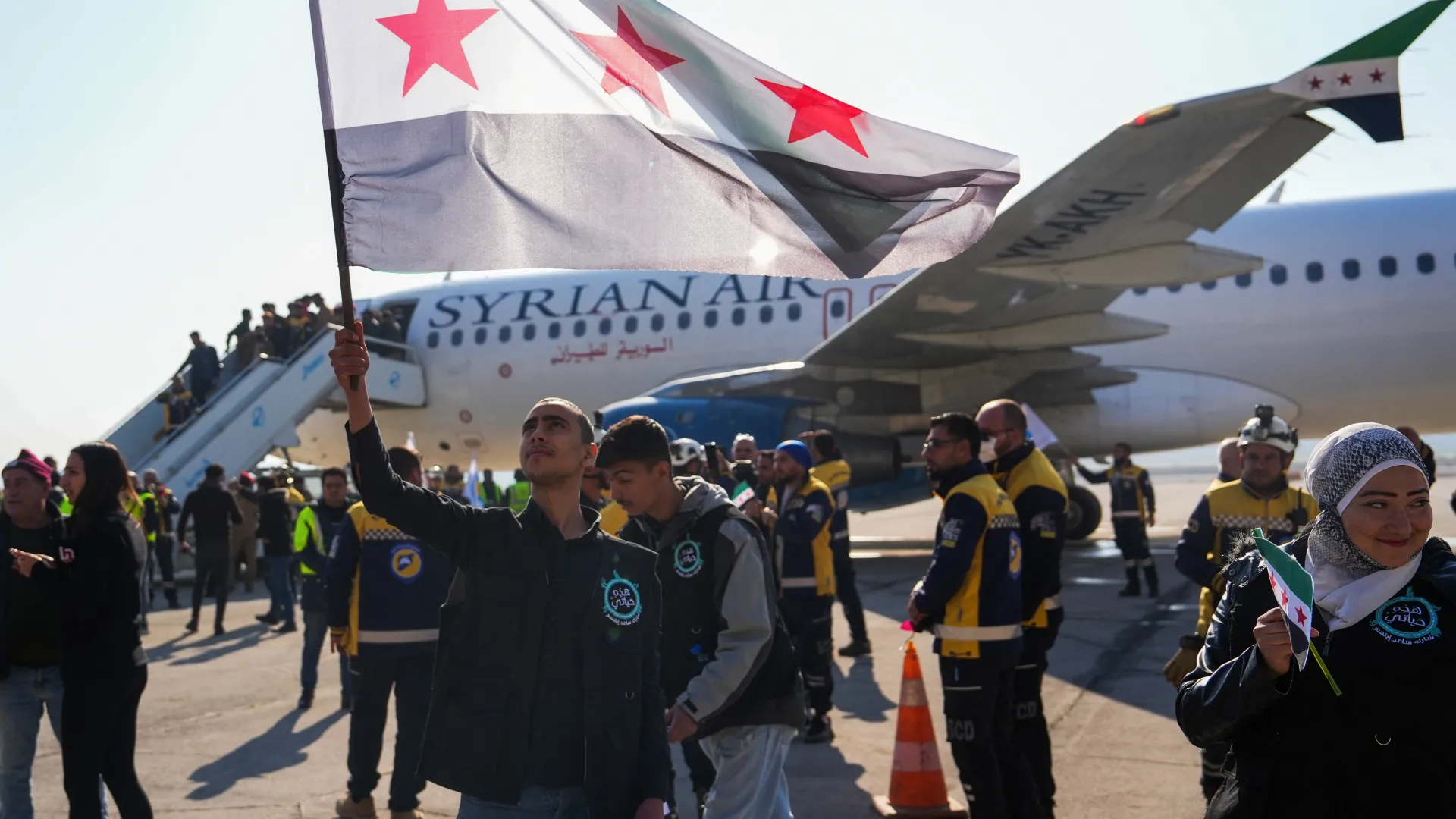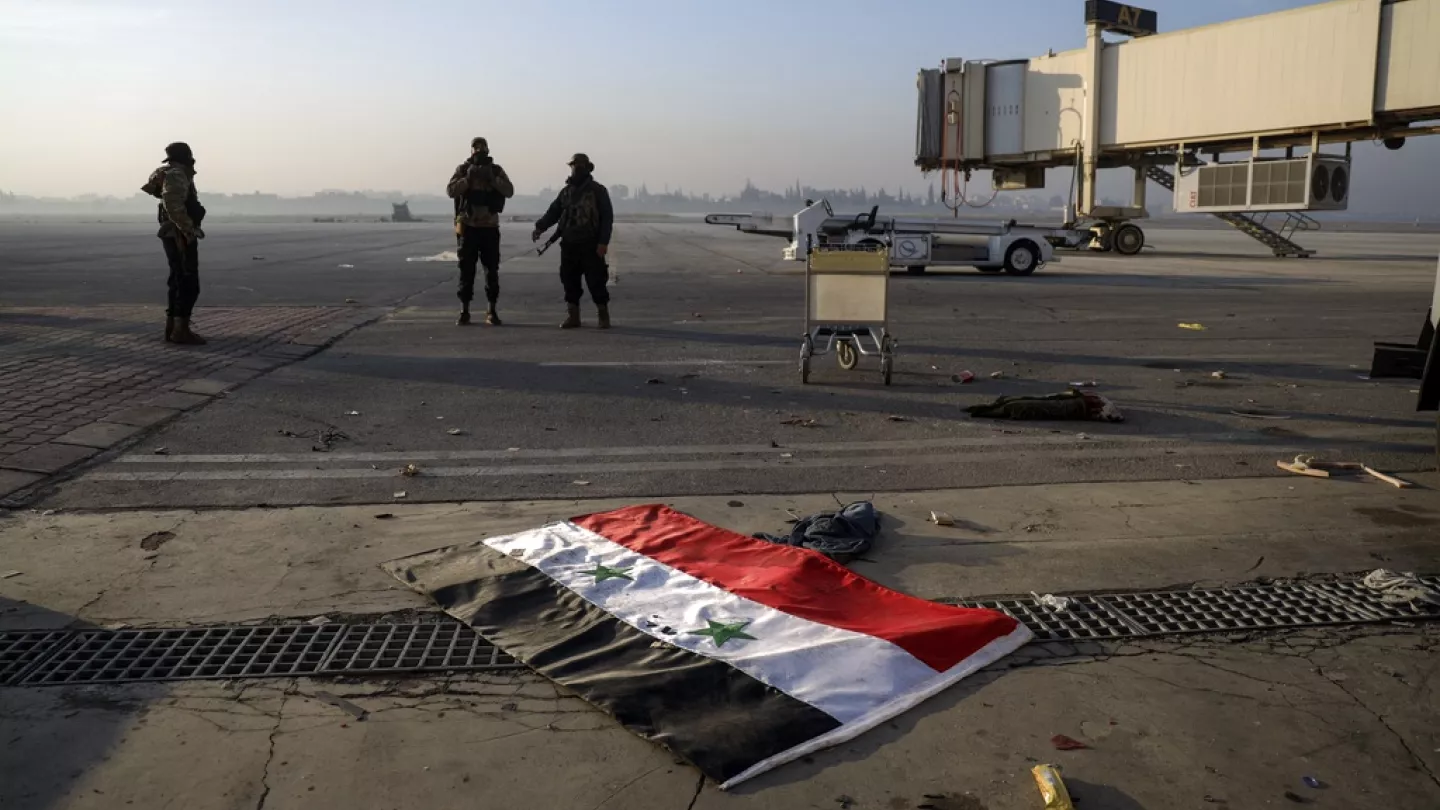Syria’s main airport resumed international flights on Tuesday for the first time since the fall of former President Bashar al-Assad’s government last month, marking a significant step by the country’s new leadership toward restoring normalcy in the war-torn nation.
A Qatar Airways flight arrived in Damascus following a direct route from Doha, signaling a gradual reopening of Syria’s global connections.
Additionally, Jordan’s Civil Aviation Authority announced that it had dispatched its first flight to Damascus in 13 years earlier that morning. The gesture, described as a “message of support” to Syria, highlights improving relations between the two nations.
Meanwhile, a flight operated by Syria’s national carrier departed Damascus for the United Arab Emirates with 145 passengers on board.
Syrian state media shared footage of travelers waving flags and singing nationalist songs, reflecting a renewed sense of hope.
The country’s new Islamist leaders, under Hayat Tahrir al-Sham, have pledged to form a committee to draft an inclusive constitution.
They have also called on civil servants to return to work to rebuild governance and have emphasized that Syria no longer poses a threat to its neighbors.
However, international sanctions imposed during al-Assad’s regime remain a major hurdle.
The interim government is led by Hayat Tahrir al-Sham, a group previously associated with Al Qaeda and still blacklisted as a terrorist organization by many countries, despite severing ties with Al Qaeda years ago.
Western nations have approached the new administration with a mix of cautious optimism and concern. Many fear that Hayat Tahrir al-Sham could enforce Islamist rule or trigger further unrest.
Germany’s foreign minister, Annalena Baerbock, expressed this sentiment during her visit to Damascus, saying, “Europe will support, but Europe will not be a patron of new Islamist structures.”
Sanctions remain a key obstacle as the interim government seeks a path forward.

Following al-Assad’s flight from Syria in December, Ahmed al-Shara, the leader of the coalition that ousted the regime, called for the United States and other nations to lift these restrictions.
On Monday, the Biden administration eased some sanctions to facilitate humanitarian aid to Syria but maintained strict measures on broader economic activity. This cautious approach reflects ongoing apprehension about the new leadership.
Syria’s new foreign minister, Asaad Hassan al-Shibani, welcomed the partial easing of restrictions.
In a regional tour aimed at reassuring Arab neighbors, including the United Arab Emirates, al-Shibani has been lobbying for the complete removal of sanctions.
Speaking at a press conference in Jordan after meeting with Jordanian Foreign Minister Ayman Safadi, al-Shibani argued that sanctions are now unjustified.
“Those economic sanctions are now being wielded against the Syrian people, even as the reason they were imposed is no more,” he said. “They should have been canceled as soon as the previous regime was toppled.”
Syria and Jordan also agreed to form a joint commission to address border security concerns, Safadi announced.
Jordan has long raised alarms about the smuggling of weapons and drugs from Syria, particularly captagon, an illegal stimulant trafficked by associates of the Assad regime.
Al-Shibani vowed to end captagon smuggling, a practice that analysts say generated significant profits for al-Assad’s inner circle.
“The threat of smuggling shall not return, and we are ready to cooperate intensively on this matter,” he stated.
The reopening of Syria’s airways and regional collaboration on security signify early steps in the country’s attempts to rebuild and reintegrate into the international community.
Still, challenges remain as sanctions, skepticism, and the legacy of past turmoil loom large.


